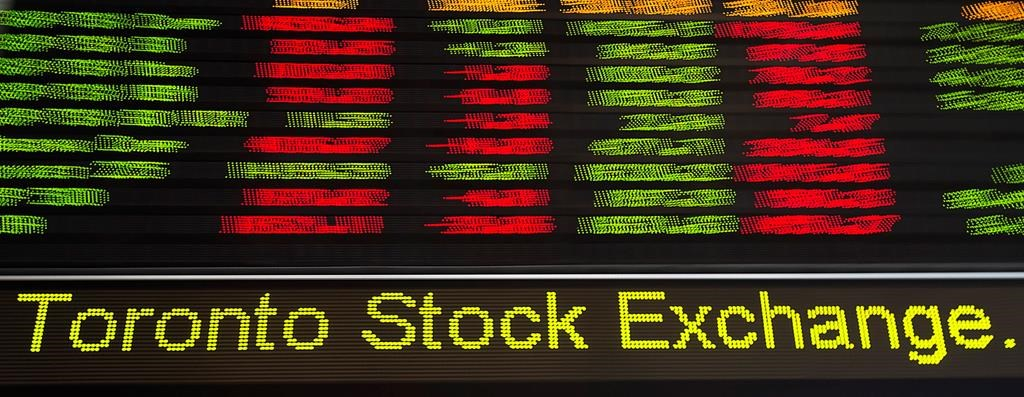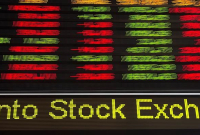Support strong Canadian climate journalism for 2025
Canada's main stock index suffered its worst day of the year on Thursday as trade uncertainty and a big drop in oil prices weighed heavily on the energy sector.
The S&P/TSX composite index closed down 162.74 points to 16,164.61, its lowest level in nearly two months.
In New York, the Dow Jones industrial average was down 286.14 points at 25,490.47. The S&P 500 index was down 34.03 points at 2,822.24, while the Nasdaq composite was down 122.56 points at 7,628.28.
North American markets sustained large declines for a second consecutive day amid angst that the U.S.-China trade spat could be lengthy or accelerate into a trade war.
"Everyday this uncertainty continues, that confidence or that sentiment kind of deteriorates a little bit and that has some economic consequences," said Michael Greenberg, portfolio manager at Franklin Templeton Multi-Asset Solutions.
While U.S. President Donald Trump likely doesn't want to risk a recession from a protracted trade war heading into an election year, he and his Chinese counterpart have stepped up the rhetoric, suggesting they're preparing for a long battle.
Chinese President Xi Jinping warned the Chinese people to prepare for a "new Long March," a reference to 1934 when Chinese communists broke through nationalist lines, resulting in Mao Zedong becoming the country's undisputed leader.
The U.S. administration on Thursday said it is sending another US$16 billion in aid to farmers hurt by his trade policies.
"Those are not necessarily great signs that they're imminently going to make a deal," Greenberg said in an interview.
The TSX fell one per cent, led by a nearly four per cent decline in the energy sector with Crescent Point Energy Corp. suffering an 8.1 per cent drop and Encana Corp. falling by 7.2 per cent.
The sector's decrease came as crude oil prices fell to their lowest level since March 12 following Wednesday's release of data pointing to an unexpected surge in U.S. inventories along with concerns that the trade skirmish will result in lower global demand.
The July crude contract was down US$3.51 at US$57.91 per barrel and the July natural gas contract was up 3.3 cents at US$2.59 per mmBTU.
Seven of the 11 major sectors suffered losses on the day. Health care was down about three per cent, while industrials, technology and financials were each down about one per cent. Financials decreased as the Royal Bank of Canada and TD Bank Group reported second-quarter results.
Defensive sectors such as telecommunications, utilities and consumer staples led on the upside.
The Canadian dollar traded at an average of 74.19 cents US compared with an average of 74.57 cents US on Wednesday.
The June gold contract was up US$11.20 at US$1,285.40 an ounce and the July copper contract was up 0.25 of a cent at US$2.68 a pound.
The trade battle is already having an impact on the global economy and business sentiment with companies less willing to invest on capital expenditures amid uncertainty around tariffs, said Greenberg.
U.S. manufacturing growth fell to a more than nine-year low in May while the IHS Markit survey of service-oriented companies slipped to a 39-month low.
However, U.S. jobless claims fell to a near 50-year low of 211,000 suggesting it's not all doom and gloom for retailers that are an important contributor to the U.S. economy.
"So the consumer seems to be in a pretty good spot with a bit of wage growth and with unemployment falling," said Greenberg.
"Obviously the risk is reading news headlines everyday about a China trade war and maybe you don't buy that second flat screen TV, maybe you sit on your hands a little bit before you make those purchases."





Comments